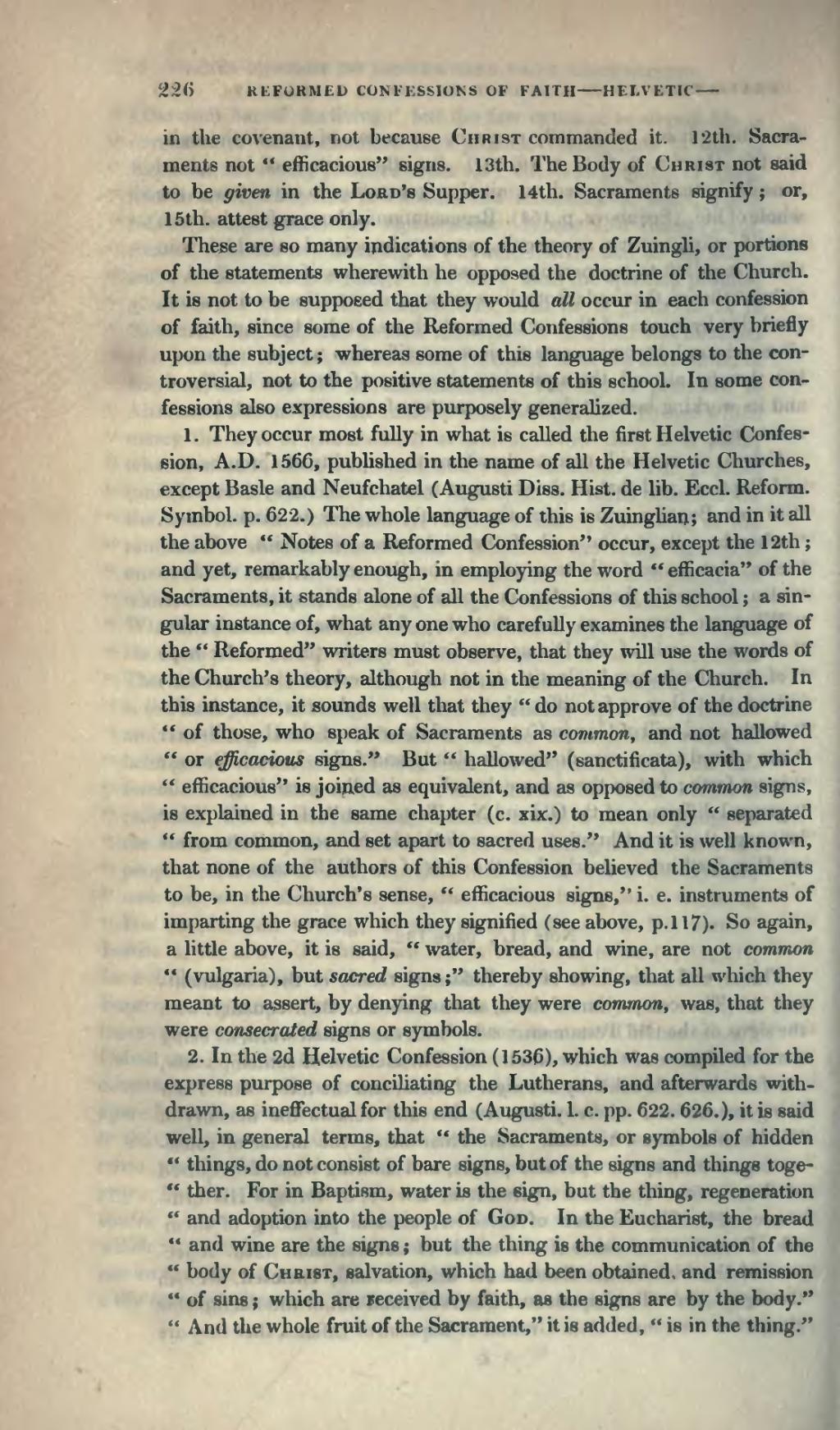in the covenant, not because Christ commanded it. 12th. Sacraments not "efficacious" signs. 13th. The Body of Christ not said to be given in the Lord's Supper. 14th. Sacraments signify; or, 15th. attest grace only.
These are so many indications of the theory of Zuingli, or portions of the statements wherewith he opposed the doctrine of the Church. It is not to be supposed that they would all occur in each confession of faith, since some of the Reformed Confessions touch very briefly upon the subject; whereas some of this language belongs to the controversial, not to the positive statements of this school. In some confessions also expressions are purposely generalized.
1. They occur most fully in what is called the first Helvetic Confession, A.D. 1566, published in the name of all the Helvetic Churches, except Basle and Neufchatel (Augusti Diss. Hist, de lib. Eccl. Reform. Symbol, p. 622.) The whole language of this is Zuinglian; and in it all the above "Notes of a Reformed Confession" occur, except the 12th; and yet, remarkably enough, in employing the word "efficacia" of the Sacraments, it stands alone of all the Confessions of this school; a singular instance of, what any one who carefully examines the language of the "Reformed" writers must observe, that they will use the words of the Church's theory, although not in the meaning of the Church. In this instance, it sounds well that they "do not approve of the doctrine of those, who speak of Sacraments as common, and not hallowed or efficacious signs." But "hallowed" (sanctificata), with which "efficacious" is joined as equivalent, and as opposed to common signs, is explained in the same chapter (c. xix.) to mean only "separated from common, and set apart to sacred uses." And it is well known, that none of the authors of this Confession believed the Sacraments to be, in the Church's sense, "efficacious signs," i.e. instruments of imparting the grace which they signified (see above, p. 117). So again, a little above, it is said, "water, bread, and wine, are not common (vulgaria), but sacred signs;" thereby showing, that all which they meant to assert, by denying that they were common, was, that they were consecrated signs or symbols.
2. In the 2d Helvetic Confession (1536), which was compiled for the express purpose of conciliating the Lutherans, and afterwards withdrawn, as ineffectual for this end (Augusti. l.c. pp. 622. 626.), it is said well, in general terms, that "the Sacraments, or symbols of hidden things, do not consist of bare signs, but of the signs and things together. For in Baptism, water is the sign, but the thing, regeneration and adoption into the people of God. In the Eucharist, the bread and wine are the signs; but the thing is the communication of the body of Christ, salvation, which had been obtained, and remission of sins; which are received by faith, as the signs are by the body." "And the whole fruit of the Sacrament," it is added, "is in the thing."

